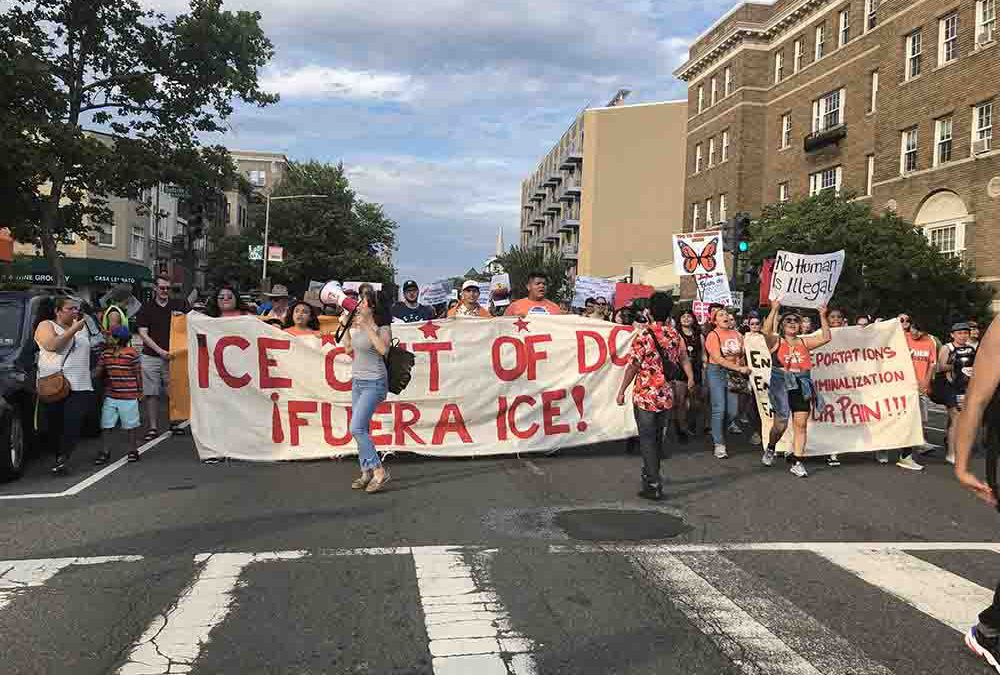WASHINGTON — One week before President Trump’s planned mass deportation operations, hundreds of protesters marched in a bilingual community rally, sponsored by Sanctuary DMV and other immigrant advocacy groups, on Saturday evening.
The rally also was spurred by allegations that two immigrant parents were detained by Immigration and Customs Enforcement in the Columbia Heights neighborhood on June 22. ICE has not confirmed if anyone was detained.
“ICE is coming into our communities and tearing apart families and tearing apart our community on a regular basis, and they did so just again last week,” Sanctuary DMV organizer Ben Beachy said. “We need our D.C. elected officials to make D.C. a real sanctuary city, which means severing all ties with ICE.”
In order to reach elected officials, the organizers gathered signatures on a petition with three demands: ending cooperation between D.C. law enforcement and ICE; ensuring that city residents detained by ICE have access to legal representation; and ending cooperation between the city Department of Corrections and ICE. They plan to give the petition to D.C.’s Mayor Muriel Bowser.
Rally-goers started gathering around 4:30 p.m. at Columbia Heights Civic Center for speeches by leaders of Many Languages One Voice, Sanctuary DMV, and Restaurant Opportunities Center — all immigrant advocacy groups in the area.
The organization leaders were joined by Ward 1 councilmember Brianne Nadeau, who sponsored a 2017 law guaranteeing legal services to documented and undocumented immigrant residents.
“I will keep fighting until we are a true sanctuary city,” the councilwoman said.
Afterward, the protesters walked along 16th Street NW, passing well-known immigrant-owned businesses and homes. The rally continued through Adams Morgan, concluding at the intersection of 18th Street NW and Columbia Road NW at 7:15 p.m.
Rally-goer Vanessa Ramon-Ibarra, 16, volunteers for the immigrant youth-led organization United We Dream. She’s the daughter of a Venezuelan-born mother and a Peruvian-born father.
“They might not have the papers, they might not be considered American, but they have been here and they have the right to be treated human,” she said. “I feel like all immigrants want to be treated equal.”


